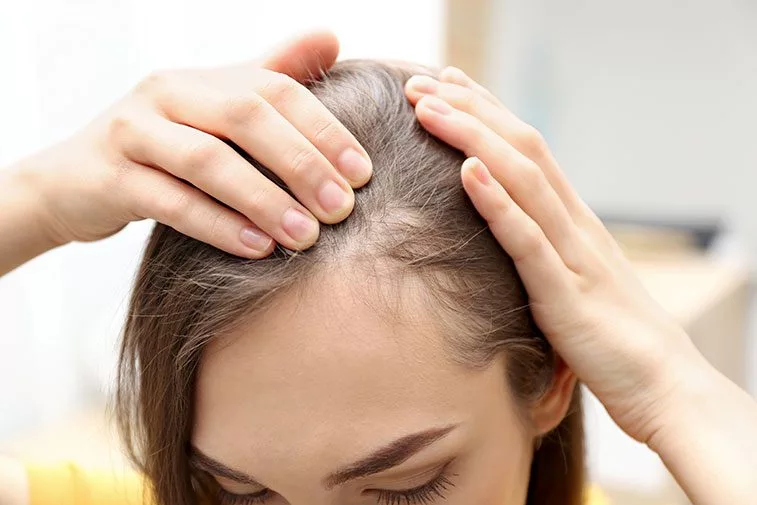
Hair loss certainly isn’t as prevalent in women as men, but it is still a very common problem with significant accompanying emotional distress. The incidence varies according to the type of hair loss, but the statistics are as follows: Between the ages of 15 and 29 about 12 % of women have thinning hair from all causes. By the time a woman reaches 65, up to 50% of women have thinning hair.
Traction alopecia is caused by continuous pulling of hair seen in certain hair styles like a tight bun, dreadlocks, or tight ponytails. It is especially common in certain ethnic groups, especially Hispanic and African American women. In these cultures, studies have shown that up to 17 % of teens already have noticeable thinning along the temples, and up to 32% of adult women experience traction alopecia. Professional women athletes who leave their hair in tight ponytails for prolonged periods of time also experience traction alopecia with thinning along the frontal hair line.
Scarring alopecia is a less common type of hair loss that results in permanent damage to the hair follicles. It is widely accepted that the incidence of scarring alopecia is increasing. While this is most common in post menopausal women, it has been reported in women as young as the late teens. Hair loss experts don’t have good evidence as to why this is increasing. There is some evidence that some of the cosmetic products may be to blame, but further research is needed.
Another increasing cause of hair loss in women is post chemotherapy. Fortunately more women are experiencing long term remission and cure of their cancers as treatment improves. However, the latest statistics have shown that up to 30 % of chemotherapy patients experience some degree of permanent hair loss.
Telogen effluvium is the most common cause of temporary hair loss and it occurs in all ages. This can be caused by both physical and emotional stress. Both acute and chronic stress cause elevated levels of the stress hormone cortisol which can cause shedding. In severe chronic stress there are also increased levels of androgen hormones which can accelerate genetic hair loss as well. Increasing levels of stress are becoming more problematic in our society and may account for why hair loss in women is increasing.
Fortunately, all types of hair can be treated if diagnosed early. If you notices any signs of hair loss it is important to see a hair loss specialist as soon as possible.
Posted by your Medi Tresse Team